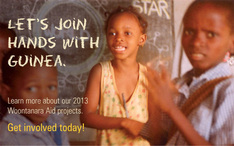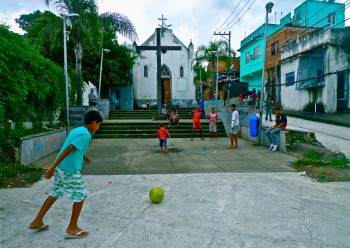
Institute for Sustainable Infrastructure
ISI is a 501 (c ) (3) non-profit corporation founded to develop and deliver a civil engineering infrastructure sustainability rating system as an element of a broader initiative to promote and deliver more effective and efficient engineered solutions to society. Aid for Africa
A unique partnership of some 80 select charities, all dedicated to solving the complex, inter-related challenges facing Africa. Our members realize that, as effective as they each are on their own, they can be even more powerful when they approach Africa’s issues as a group. Together our members, with their partners on the ground in Africa, touch almost every aspect of the African community. Whether they are collecting and distributing books to school children, introducing medical strategies to combat the spread of HIV/AIDS, or identifying and supporting women’s micro-enterprise projects, Aid for Africa’s members have one thing in common—a passionate desire to help the people of Africa solve critical problems and build a better future for their children and communities. Free The Children » International Programming
Our Development Model Because it takes a village to raise a child If we’re going to help children break free from poverty, we must first empower their mothers, improve their schools, outfit their health clinics and build their water facilities. In Africa, Asia and Latin America, Free The Children works with communities to establish a comprehensive, child-focused development approach that gives all community members the education, skills and opportunity to lift themselves out of poverty—forever. No problem or solution stands alone We know that there is no single solution to ending poverty—but there are many solutions that, together, get the job done. Designed to meet the basic needs of all members of a community and eliminate the obstacles preventing children from accessing education, Adopt a Village is a unique sustainable development model made up of five core pillars: 
Rural Health and Environment Programme
From www.worldhabitatawards.org -March 16, 2013 The Rural Health and Environment Programme successfully demonstrates how communities can be involved in the sustainable and affordable development of their own community infrastructure and housing. This holistic approach starts with the provision of water and sanitation and moves on to the self-funded development of housing. Over 8,000 households have been involved to date in the programme which continues to expand throughout the state of Orissa. A total loan approach is used for the housing so that all costs are met by the villagers themselves. The housing programme is linked to the provision of training and income generation opportunities to ensure its long-term economic sustainability. Aims and Objectives This programme successfully demonstrates how rural communities can be involved in the sustainable and affordable development of their own village infrastructure and housing. It aims to enable a critical mass of poor and marginalised people in the rural areas of the state of Orissa to empower themselves to achieve a better quality of life characterised by:
|

Malo Ga Kujilana (MGK)
When a community is selected, MGK spends the first six weeks educating about hygiene and sanitation then partners with the community to build EcoSan latrines, water filtration systems, and medicinal gardens for water-borne illnesses. For the next four weeks, the community is educated about malaria, receives bed nets and learns about the cultivation and benefits of Artemisia Annua as a curative of the disease. During this phase, the community also receives micro-loans in order to empower the ideas that each member has shared towards education, construction or business. Finally, the last phase is spent educating the group about nutrition through seed production, animal husbandry and appropriate cooking technologies. This unit highlights organic local food production, nutritive meals for growing children using Moringa powder, and safe, efficient cooking methods. Global Ecovillage Network
GEN offers inspiring examples of how people and communities can live healthy, cooperative, genuinely happy and meaningful lifestyles --- beacons of hope that help in the transition to a more sustainable future on Earth. We foster a culture of mutual respect, sharing, inclusiveness, positive intent, and fair energy exchange. GEN-International works trough three broad regional organisations: GEN Oceania and Asia (GENOA), the Ecovillage Network of the Americas (ENA), and GEN-Europe/Africa/Middle East. GEN-International is currently supporting the emergence of GEN-Africa and CASA (El Consejo de Asentamientos Sustentables de las Américas) as independent networks in order to make more visible the dynamic and impressive work already being done in Africa and South America. GEN-Africa is the African Ecovillage Association
Human Development Foundation
Fighting Poverty by Helping People Help ThemselvesFor the past 16 years HDF has been fighting extreme poverty through a unique holistic model of development focused on lasting change. The cornerstone of HDF’s efforts is our commitment to working directly with communities through our social mobilization program. In this, HDF facilitates the formation of democratic community organizations which empower individuals to have a say in the decisions that affect them. The HDF Holistic Model™ includes programs in 5 key areas. Social Mobilization, Education & Literacy, Primary Health Care, Economic Development, and Sustainable Environment. Within each area of focus, our mission remains the same: Empower communities and individuals with the tools and resources needed to achieve and sustain a better way of life. At HDF, we believe everyone deserves to be treated with respect and dignity, and have the opportunity to succeed. Presently, HDF is operating in 17 districts in all four provinces of Pakistan and AJK including Mardan, Swat, Tando Mohammed Khan, Rahim Yar Khan, Zhob, Karachi, Islamabad, Lahore, Attock, Bahawalpur and Muzzafarabad. 
Providing food, shelter, medical care and education for people in need in West Africa
From woontanaraaid.org - June 2, 2013 Woontanara Aid aims to sustainably improve the lives of people in need in West Africa by providing educational opportunities, vocational training, food and medical support for women, orphaned children and people with disabilities. Climate-Smart Villages | CCAFS: CGIAR research program on Climate Change, Agriculture and Food Security
From ccafs.cgiar.org - July 23, 2013 
Favela as a Sustainable Model
Catalytic Communities is committed to promoting, fostering and developing the dialogue surrounding the sustainable development of favelas and other informal communities worldwide based on the qualities inherent in such communities. We initiated this dialogue in June 2012, with sustainable development at the center of global discussion at the Rio+20 UN conference, presenting “Favela as a Sustainable Model,” a short film contributing to a growing global dialogue around informal settlements, particularly consolidated ones like those in Rio, and the potential lessons they offer towards a sustainable urbanization worldwide. The film premiered at the Rio+20 People’s Summit and was featured in the Summit’s Film Series. |